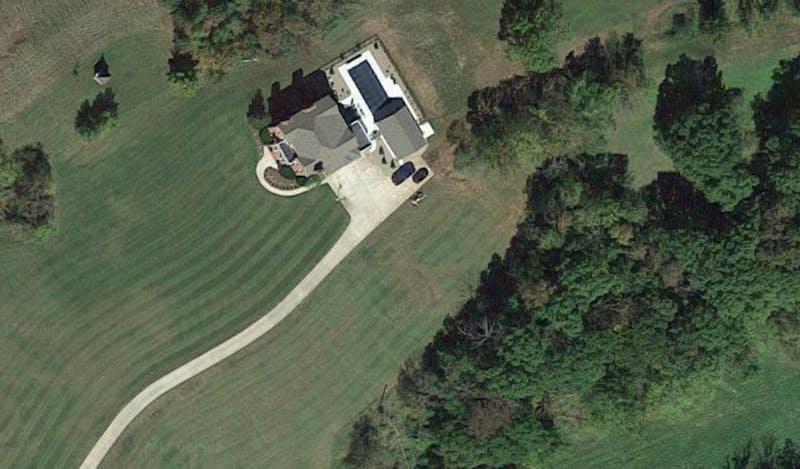Landing Page
Special Projects
This story is part of a series of specially designed stories that represents some of the best journalism The Post has to offer. Check out the rest of the special projects here.

MEAGAN HALL
09.07.17
The start of Duane Nellis’ presidency in June came alongside the end of university-provided housing for Ohio University’s presidents amid a state investigation into the matter.
Nellis and his wife, Ruthie, live about 2 miles south of OU’s Athens campus at 36 Warren Road in a home they purchased for $650,000 in late May. Per his contract, the university provides Nellis a $5,000 monthly housing allowance and requires that he live in Athens County.

PROVIDED VIA Google Maps
A satellite view of 36 Warren Road.
OU’s Board of Trustees decided to use a monthly stipend rather than “offer the benefit of a house with an unknown cost” before Nellis was hired, OU Spokeswoman Carly Leatherwood said.
The housing allowance is a shift from the university’s previous policies toward housing its presidents. Until two years ago, presidents had lived near the center of campus at 29 Park Place since 1952, according to OU’s website.
In 2015, OU decided to move former OU President Roderick McDavis and his wife, Deborah, from 29 Park Place to an off-campus house at 31 Coventry Lane through a $1.2 million lease-purchase agreement.
The university later announced it would only lease the home due to a •“problematic” verbal agreement its owner made with OU Director of Athletics Jim Schaus, according to a previous Post report.
The lease for that house ended June 30, Leatherwood said. But OU is still being investigated by the Ohio Office of the Inspector General for matters related to presidential housing as part of an investigation that started in 2015, according to another Post report.
Nellis’ house purchase in May included three parcels of land of 9 total acres, according to the Athens County auditor’s website. Additionally, his contract states that the house may be used for “university-related business and entertainment” and states that the university will cover the costs of such events.
“The terms of Dr. Nellis’ contract, including the housing allowance, reflect national trends in higher education executive compensation,” Board of Trustees Chair Janetta King said in an email. “President Nellis’ compensation affirms the high degree of confidence the Board has in him to lead the institution into its third century.”
Research shows, however, that allowances are less common nationally, according to a study conducted by James Finkelstein and Judith Wilde of George Mason University that analyzed presidential contracts at 115 public universities.
“The two most traditional perks historically are a car and housing,” Finkelstein, professor emeritus of public policy at George Mason, said regarding university presidents. “We’ve looked at all kinds of perks. Those have been around for decades.”
About 72 percent of the institutions studied required university-provided housing for presidents, and only 17 percent of them specifically listed a housing allowance for presidents to live off campus, said Wilde, chief operating officer of the university’s Schar School of Policy and Government.
OU’s housing allowance of $60,000 a year is above average, Finkelstein said. The housing allowances the two studied varied from $18,000 to $72,000 with an average of about $42,500.
“I’ve been at a couple universities when that shift was made,” Wilde said of moving to off-campus presidential housing. “In those cases, it was due to other family matters … or it was because the on-campus housing had gotten old enough that it needed major renovations.”
Landing Page
This story is part of a series of specially designed stories that represents some of the best journalism The Post has to offer. Check out the rest of the special projects here.